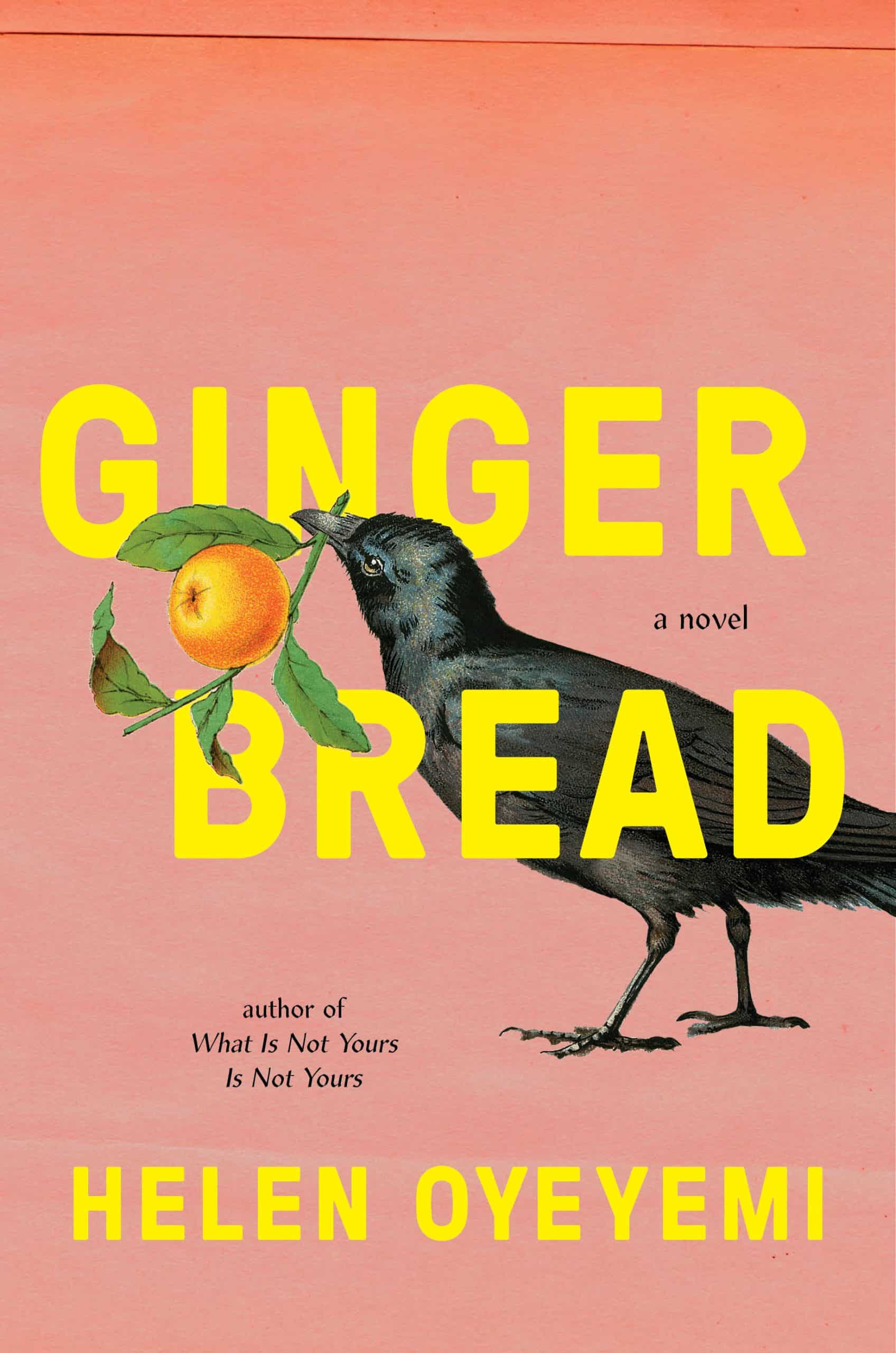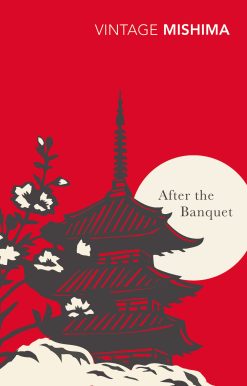Gingerbread: A Novel
24.95 JOD
Please allow 2 – 5 weeks for delivery of this item
Add to Gift RegistryDescription
“Exhilarating. . . . A wildly imagined, head-spinning, deeply intelligent novel.” —The New York Times Book Review “Wildly inventive. . . . [Helen Oyeyemi’s] prose is not without its playful bite.” —Vogue The prize-winning, bestselling author of Boy, Snow, Bird and What Is Not Yours Is Not Yours returns with a bewitching and imaginative novel.Influenced by the mysterious place gingerbread holds in classic children’s stories, the beloved bestselling author of Boy, Snow, Bird and What Is Not Yours Is Not Yours invites readers into a delightfully inventive and bewitching novel about a surprising family legacy, in which the inheritance is a recipe.Perdita Lee may appear your average British schoolgirl; Harriet Lee may seem just a working mother trying to penetrate the school social hierarchy; but there are signs that they might not be as normal as they think they are. For one thing, they share a gold-painted, seventh-floor walk-up apartment with some surprisingly verbal vegetation. And then there’s the gingerbread they make. Londoners may find themselves able to take or leave it, but it’s very popular in Druhástrana, the far away (or, according to many sources, non-existent) land of Harriet Lee’s early youth. The world’s truest lover of the Lee family gingerbread, however, is Harriet’s charismatic childhood friend Gretela—a figure who seems to have had a hand in everything (good or bad) that has happened to Harriet since they met.Decades later, when teenage Perdita’s search for her mother’s long-lost friend prompts a new telling of Harriet’s story. As the book follows the Lees through encounters with jealousy, ambition, family grudges, work, wealth, and real estate, gingerbread seems to be the one thing that reliably holds a constant value. Endlessly surprising and satisfying, written with Helen Oyeyemi’s inimitable style and imagination, Gingerbread is a true feast for the reader.
Additional information
| Weight | 0.32 kg |
|---|---|
| Dimensions | 1.75 × 15.34 × 4.08 cm |
| Author(s) | |
| Format Old` | |
| Language | |
| Pages | 272 |
| Publisher | |
| Year Published | 2019-3-5 |
| Imprint | |
| Publication City/Country | Canada |
| ISBN 10 | 0143197851 |
| About The Author | HELEN OYEYEMI is the author of the story collection What Is Not Yours Is Not Yours, winner of the PEN Open Book Award, along with six novels, including Gingerbread and Boy, Snow, Bird, which was a finalist for the 2014 Los Angeles Times Book Prize. |
“Oyeyemi takes the familiar contours of a children’s tale and twists it into something completely new, unsettling, and uncanny. . . . The effect is heady, surreal, and disarming—you have to be willing to surrender to Oyeyemi’s vision and the delicious twists and turns of her prose. . . . A strange, shape-shifting novel about the power of making your own family.” —Kirkus starred review “Brilliant. . . . Oyeyemi excels at making the truly astounding believable and turning even the most familiar tales into something strange and new. This fantastic and fantastical romp is a wonderful addition to her formidable canon.” —Publishers Weekly starred review “It is the project of Oyeyemi’s wildly inventive storytelling to superimpose the fantastical over the mundane. . . . The borderless nature of literature allows Oyeyemi to perform these feints and transmogrifications several times per page and undermine confidence in the storytelling method itself. . . . And caught up in this fairy-tale dream state, where nothing is a given, we realize that this book is not only about childhood, but also what it feels like to be a child.” —TIME Magazine“Beguiling.” —Buzzfeed Books“[Gingerbread] has the tinge of the folkloric to it: There are family feuds, a childhood friend named Gretel, and many more archetypal touchstones. Tying this all together is Oyeyemi’s deft hand, virtuosic lyricism, and graceful ability to find transcendence in all aspects of life, sweet and spicy alike.” —Nylon“Gingerbread is the story’s metaphorical core, both sweet and spicy, simple and yet it is the hook for much strange and bizarrely haunting children’s folklore, and Oyeyemi manages to make something just as complicated and delicious; her prose is not without its bite.” —Vogue“Oyeyemi incorporates fairy tale elements, magical realism, and multiple framing devices to draw readers deeper into her story, building up the mysteries of Druhástrana and taking the plot through unexpected twists. Fans of Oyeyemi’s work won’t want to miss it, and first-time readers will become fans, too.” —Bust Magazine“Playful, enchanting…a modern-day fairy tale with a mysterious twist.” —Marie Claire“Like a fairy tale tethered to reality, Helen Oyeyemi’s Gingerbread is as warm and piquant as the foodstuff it’s named for.” —Harper’s Bazaar“Helen Oyeyemi never disappoints, and she’s done it again. Gingerbread . . . is her best work yet.” —HelloGiggles.com“Gingerbread looks set to bring more of her inventiveness and wit to a fairytale element—gingerbread, of course—that holds a mysterious place in children’s literature.” —Literary Hub “Oyeyemi’s trademark imagination makes for an enchanting, unreal story about legacy and birthright.” —Esquire“Oyeyemi’s latest is a clever subversion of fairy tale tropes to expose the secrets, entanglements, and estrangements within a family. . . . Both a scathing indictment of capitalism and a tribute to the maddeningly inescapable endurance of family bonds, this enchanting tale will resonate with literary fiction lovers.” —Booklist “[A] rollicking tale from the wildly inventive Oyeyemi.” —Library Journal “Oyeyemi takes us on a journey that is wild and adventurous. Gingerbread is a novel you won't soon forget.” —MSN.com“Gingerbread . . . is no traditional family drama, instead filled with meditations on wealth, a puzzling intergenerational mystery, and Helen Oyeyemi’s knack for pacing and prose.” —Romper Magazine“Oyeyemi’s latest novel, Gingerbread, proves that her writing still remains an unpredictable delight, whisking readers through a fantastical tale with contemporary relevance. . . . It doesn’t quite make sense unless you’re willing to meet the book where it is—in a surreal, chaotic world where the real and the imagined overlap.” —Paste Magazine“Helen Oyeyemi is a writer whose storytelling powers and command over the English language are so great I will follow her anywhere. . . . She has a unique way of taking stories so primal they feel as familiar as breathing, and making them completely fresh. . . . Gingerbread is a stunningly original and lusciously weird book, and my love for Helen Oyeyemi remains as strong as ever.” —The Sheffield Telegraph“Open this book, I entreat you, and get lost in a new country: peculiarly beautiful, dangerous, both foreign and familiar. A country where every hope crumbles and every desire is dashed, yet you will be buoyed aloft on the intricate, delicate fragrance of the very best gingerbread. Oyeyemi's whirling sparkler of a story is loving, strange and entirely exhilarating.” —Marina Endicott, author of Good to a Fault“A writer of sentences so elegant that they gleam.” —Ali Smith, bestselling author of Autumn, Winter, and the Baileys Prize-winning How to be Both“A writer we should be delirious to have as a contemporary.” —The Independent“Exhilarating. . . . Gingerbread is jarring, funny, surprising, unsettling, disorienting and rewarding. . . . This is a wildly imagined, head-spinning, deeply intelligent novel that requires some effort and attention from its reader. And that is just one of its many pleasures.” —New York Times Book Review“Dreamy, spellbinding, and unlike just about anything you can imagine. It's a book that resists comparisons; [Helen] Oyeyemi's talent is as unique as it is formidable.” —NPR“The outline of Oyeyemi's remarkable career glimmers with pixie dust. . . . The atmostphere of fantasy lingers over these pages like some intoxicating incense. . . . [Oyeyemi] again shows her ability to mesmerize and enchant.” —The Washington Post“Superbly inventive.” —O, The Oprah Magazine“Oyeyemi's fictional world is scintillating and eccentric, an 'implosion of memory,' as one character puts it.” —The New Yorker“Oyeyemi so expertly melds the everyday, the fantastic and the eternal, we have to ask if the line between 'real' and 'unreal' is murkier than we imagined—or to what extent a line exists at all. . . . I had the delightful and rare experience of being utterly surprised.” —The New York Times Book Review“[Oyeyemi’s] imagination and storytelling abilities and her ability to merge contemporary and classic folk stories make for wonderful, if often unsettling, reading, even as she’s taking a look at social and political issues.” —Toronto Star“A beautifully, wildly inventive beast. Nobody else writes like this: puncturing the timelessly poetic with harshly contemporary asides, animating plants and dolls with a cool nonchalance. And how is it that this dark, nutty novel exudes cozy warmth above all else?” —Entertainment Weekly“If you sit back and accept the twists, we guarantee you’ll enjoy your romp through mythical countries and apartments where rooms spontaneously rearrange themselves; through twisted family dynamics that could rival those in a Bravo reality show; into rooms where dolls carry on conversations with human women.” —Refinery29“The charm evident on every page of this novel is enough to lure any reader through its twistier passages.” —Slate“This is a bold book with a great deal of depth and mischief to it that makes you think how astonishing it would be to have our parents sit up with us for a whole night and tell us in fine detail what they have lived.” —Financial Times “Is there an author working today who is comparable to Helen Oyeyemi? She might be the only contemporary author for whom it’s not hyperbole to claim she’s sui generis, and I don’t think it’s a stretch either to say she’s a genius, as opposed to talented or newsworthy or relevant or accomplished, each of her novels daring more in storytelling than the one before. . . . A tale that bears multiple rereadings and is more marvelous the deeper you’re willing to dive into its rearranging of reality, its derangement.” —Los Angeles Review of Books“Helen Oyeyemi is a master of reinventing tropes from traditional fairy tales to say something entirely new about the world we live in. She twists familiar stories in entirely unpredictable ways, and her books never end up where you thought they would when you started.” —Vulture “The journey through Gingerbread is a delight. Playful language coupled with a dark sense of humor and intriguing new twists on established fairy-tale tropes make for an engaging, if not exactly straightforward, reading experience.” —Winnipeg Free Press “Gingerbread rises to the level of Mr. Fox and Boy, Snow, Bird, revealing Oyeyemi as a master of literary masquerade, forging a singular art.” —Minneapolis Star-Tribune“Gingerbread isn't just one of the best books of March, it's poised to be one of the best books of the year thanks to the magnificent writing of Helen Oyeyemi.” —Cosmopolitan.com“Helen Oyeyemi flexes her exceptional talents and infuses her magic into this novel."- Bustle“Oyeyemi’s sixth novel sparkles with her sublime inventiveness.” —BBC Culture“[A] challenging, mind-bending exploration of class and female power heavily spiced with nutmeg and sweetened with molasses.” —Ron Charles, The Washington Post“Helen Oyeyemi's writing is full of enchantment and magical details, and will make you want to dive into your own family's rich legacy. Side effects include cravings for gingerbread.” —Woman’s Day“From a childhood best friend named Gretel to a family recipe passed down through generations, Oyeyemi takes us on a journey that is wild and adventurous. Gingerbread is a novel you won't soon forget.” —PopSugar “Gingerbread is a novel that recognizes the way relationships can grow out of hardship and being stuck in places one wishes to leave.” —Boston Globe“Oyeyemi [is] . . . one of our most singular and inventive contemporary voices. . . . Oyeyemi’s sentences continually sparkle with viciously precise humor.” —Spectator USA“Exhilarating and original. . . . Oyeyemi’s enviable imagination and spellbinding writing shines through in this playful and intelligent story of family and imagination.” ―PEN America |
|
| Excerpt From Book | Harriet Lee’s gingerbread is not comfort food. There’s no nostalgia baked into it, no hearkening back to innocent indulgences and jolly times at nursery. It is not humble, nor is it dusty in the crumb. If Harriet is courting you or is worried that you hate her, she’ll hand you a battered biscuit tin full of gingerbread, and then she’ll back away, nodding and smiling and asking that you return the tin whenever convenient. She doesn’t say she hopes you’ll enjoy it; you will enjoy it. You may think you don’t like gingerbread. Well . . . just try this. If you live low‑carb, she can make it with almond or coconut flour, and if you can’t have gluten, she’ll use buckwheat or millet flour, no problem. A gingerbread addict once told Harriet that eating her gingerbread is like eating revenge. “It’s like noshing on the actual and anatomical heart of somebody who scarred your beloved and thought they’d got away with it,” the gingerbread addict said. “That heart, ground to ash and shot through with darts of heat, salt, spice, and sulfurous syrup, as if honey was measured out, set ablaze, and trickled through the dough along with the liquefied spoon. You are phenomenal. You’ve ruined my life forever. Thank you.” “Thank you,” said Harriet. She makes two kinds—the kind your teeth snap into shards and the kind your teeth sink into. Both are dark and heavy and look like they’ll give you a stomachache. So what? Food turns into a mess as soon as you chew it anyway. She sometimes tells people that she learned how to make the gingerbread by watching her mother and that the recipe is a family recipe. This is true, but it’s also edited for wholesomeness. Harriet’s mother, Margot, is no fan of gingerbread. She stood alone over her mixing bowl and stirred with the clenched fist of a pugilist. Bambi‑eyed Harriet Araminta Lee seems so different from the gingerbread she makes. If she has an aura, it’s pastel‑colored. She’s thirty‑four years old, is always slightly overdressed, and wears hosiery gloves when pulling on her tights so as not to snag them. She has a slight Druhástranian accent that she downplays so as not to get exoticized, and she doesn’t like her smile. To be precise, she doesn’t like the way her smile photographs as forced. So smiling’s out. But she doesn’t think she can sustain a sober look without seeming unfriendly, so she frequently switches between two expressions—one she thinks of as Alert and the other she thinks of as Accommodating, though she’s the only one who can tell the difference. Since her name is far from uncommon, she’s encountered other Harriet Lees, Harriet Leighs, and Harriet Lis. Taken in aggregate, Harriet Leigh/Li/Lee is a hard nut, a pushover, thin‑skinned and refreshingly forthright, a hedonist and a disciplinarian. She’s met Harriet Lee who is a post office clerk by day and a stand‑up comedian at night, and she’s met Harriet Li the practicing psychoanalyst. She’s met Harriet Lee the Essex princess, Harriet Leigh the naval officer, and Harriet Li the sales assistant so rude that you make a note of her name so as to be able to tell the manager about her. The only thing our Harriet really feels she brings to the Harriet Li/ Leigh/Lee brand is a categorical sincerity. Her gingerbread keeps and keeps. It outlasts all daintier gifts. Flowers wilt and shed mottled petals, mold blooms greenish‑white on chocolate truffles, and Harriet’s gingerbread hunkers down in its tin, no more attractive than the day it arrived, but no more repellent either. The gingerbread recipe came down through Harriet’s father’s side of the family. It was devised by a person who became Harriet Lee’s great‑great‑great‑grandmother by saving Harriet’s great‑great‑great‑ grandfather’s life. In their time there was a clemency clause for those about to be publicly executed. Before he made you climb up onto the beam, the hangman took one shot at matchmaking on your behalf. Will any take this dross to wed? or whatever it was they said in those days. Marriage was purgatorial, purifying. All it took was for one member of the crowd to come forward and say that they would handle your rehabilitation. This was rare, but it did happen. And then the two of you were married at once so neither party could think better of it later. Many viewed public executions in moral terms, or in quasi‑cosmic terms, as a gesture toward some sort of equilibrium. Others approached them as spectacle, but due to the clemency clause, public executions occupied a space in Harriet’s great‑great‑great‑grandmother’s life not dissimilar to the blind dating and speed dating of today. Plenty of opportunity for a realist who has some idea of what she’s looking for. At the past five executions Great‑Great‑Great‑Grandma’s gut had told her no. But this time, situated as close to the scaffold as she could get, she found herself standing next to somebody sobbing into a deluxe handkerchief, and she thought it was interesting that the woman kept dabbing her face even though not a tear fell. Great‑Great‑Great‑Grandma also found it interesting that the woman kept making hand signals to the man about to be executed, signals the man returned with authentic tears. The ragged reprobate and the lady in silk. And as his list of offenses was read out, it seemed to her that, while brutality had been a near‑unavoidable by‑product, the motivation was money. Great‑Great‑Great‑Grandma eyed the lady in silk, who was listening with downcast eyes and her handkerchief held up to conceal what must surely be a smile. Great‑Great‑Great‑Grandma took another look at the ragged reprobate and bade him a silent farewell. She thought it something of a mercy for the gullible to die young, as being too often mistaken breaks the spirit. But then, asked for his last words, Great‑Great‑Great‑Grandfather said he’d do it all again. His voice was so shaky he had to repeat himself a few times before anybody understood what he was saying. Could this man be any more terrible at lying? Great‑Great‑Great‑Grandma put in her bid for him. Family lore has it that they entertained each other very well, the pragmatist and the man who was almost too gullible to live. One had more patience, and the other had more resolve, and they were about even when it came to daring, so their love established possibilities and impossibilities without keeping score. They settled on caretaking a farm, raised grain crops for the farm’s owner, and lived very much at the mercy of a climate that would exhibit dazzling beneficence for three or four years in a row and then suddenly take back all its gifts, parching and flooding and freezing the land or reaching through the soil with a gray hand that strangled growth at the root. The abundance of a good harvest overwhelmed the family with glee and trepidation—it put a bone‑cracking temporal pressure on them, like raking in gold that rots. As for the lean years . . . Harriet’s great‑great‑greats shunned both prayer and provocation. They had talked it over, and nature struck them as an entity that was either cruel or mad. Not caring to attempt communication with it, they merely sought not to offend it. They kept having more children, so there were always about fifteen, including the ones on their way in or on their way out. The gingerbread recipe is one of the lean‑year recipes, and it stands out because the lean‑year recipes are all about minimizing waste and making that which is indigestible just about edible. None of it tastes good save the gingerbread, which is exactly as delicious as it has to be. Blighted rye was the family’s food of last resort, and the jeopardy in using it was so great that it made Great‑Great‑Great‑Grandma really think about how to take the edge off. Out came the precious ingredients, the warmth of cinnamon, nutmeg, cloves, and ginger, the best saved for last. After this gingerbread you might sweat, swell, and suffer, shed limbs. Often that didn’t happen—often the strenuous sifting of the grain expelled just enough ergot to make this an ordinary meal as opposed to a last meal. But just in case, just in case, gingerbread made the difference between choking down risk and swallowing it gladly. That temporary subtraction of fear still gives Harriet’s mother goose bumps. It is a veiling of alternatives, a way of making sure you don’t reject the choice Mother’s made for you. No matter what, you will not starve. She has a hunch that over the years, usage of this recipe has always fallen on the shadow side of things. In her own time, Margot Lee replaced the roulette rye flour with flour from wheat blighted by weather and worm. Nothing that would make anybody sick, just inferior grain that couldn’t be sold in the usual way. And Margot never did sell the gingerbread, though it brought her useful things through barter. Information, goodwill, and yes, on at least one occasion, compliance. Gingerbread was all she had to offer in exchange for these things, and all she had to spare. |
Only logged in customers who have purchased this product may leave a review.






Reviews
There are no reviews yet.